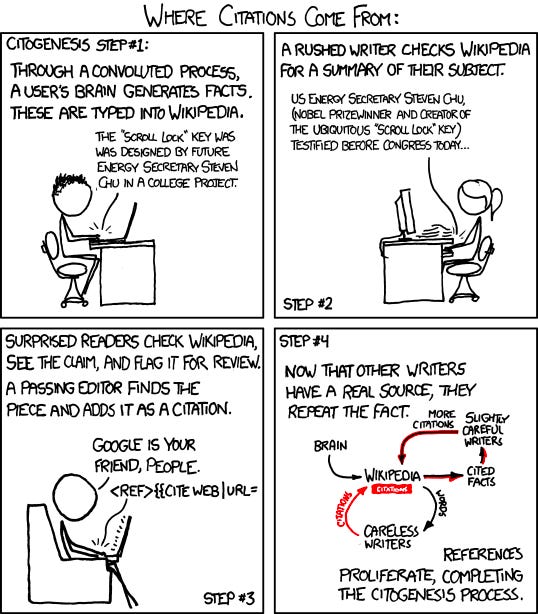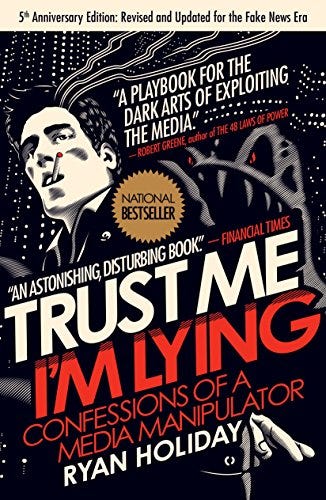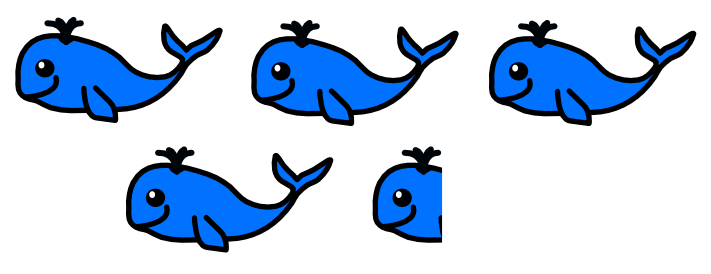Trust Me, I'm Lying by Ryan Holiday
a Book Review by Sophia Williams
The great irony of Trust Me, I'm Lying is that it's an exposé about the corruption of modern news by a self-declared liar. So should the reader really trust the book and its author, Ryan Holiday?
Trust Me, I'm Lying is Ryan Holiday's first book and it's about his career in advertising. It discusses how modern news has been corrupted by its online business model where profits are directly tied to advertising revenue. The more clicks a web page receives, the more a business makes, motivating a "quantity over of quality" mentality and incentivizing incendiary journalism. At first glance, Holiday's thesis seems unoriginal, but what really makes this book interesting are Holiday's stories about how he has personally taken advantage of this corrupted system in his career in advertising.
Holiday points out how investigative reporting is not the status quo in modern media. Instead, financial incentives lead journalists to publish first, without always confirming the legitimacy of their data and frequently citing links or articles as sources; "The link economy encourages bloggers to repeat what 'other people are saying' and link to it instead of doing their own reporting and standing behind it" (pg 180).
Holiday argues that most media trickles up from small blogs to local news and larger blogs (eg. Buzzfeed, Huff Post) to larger publications (eg. New York Times, Los Angeles Times). This allows people like Holiday and his co-conspirators, to send "tips" to local bloggers only to see that news later show up as "fact" on more legitimate sites like the New York Times.
If the these tips happen to be wrong, journalists are slow to correct their errors. Bloggers will often add retractions to the bottom of blogs, where no reader will ever see it, rather than taking down a revenue generating article. This means an article, even if it's wrong, can permanently damage a company or individual's reputation.
Holiday emphasizes that modern media is untrustworthy. For example, media outlets will also publishing articles with hedging language and correct details as more information becomes available, which is also called iterative journalism. "One of the ways that journalists justify their laziness today is by claiming that breaking news deserves special exemptions from their moral obligations to, you know, actually be right and pass along correct information" (pg 185). The link economy and a reliance on anonymous tipping has lead to phenomena such as circular reporting also know as "citogenesis" (something I might have just contributed to by adding this Wikipedia link to this book review).

This book was so interesting. Who doesn't love a polemic? I've been reading quite a few Ryan Holiday books lately because he is a good writer and the themes of his books are fascinating. Holiday is an often polarizing figure, and Trust Me, I'm Lying is considered both a criticism of the news and a guidebook to unethical advertising. Ryan Holiday's word is not the of God, he just writes so convincingly you might believe it is. You should keep your bullshit monitor on high alert while reading the book, but also observe how many of his theories seem grounded in solid evidence.
The Don’t Call Me Ishmael Official Book Rating, Sponsored by Big Krill ™:
4.5/5 Whales. Way Better than Moby Dick.



